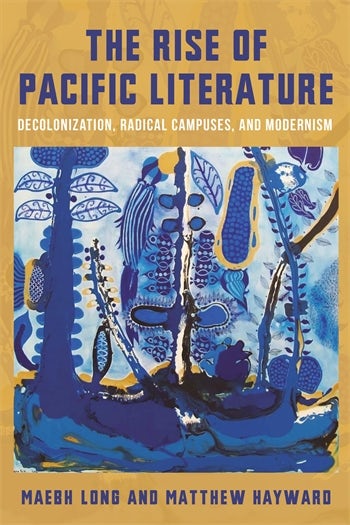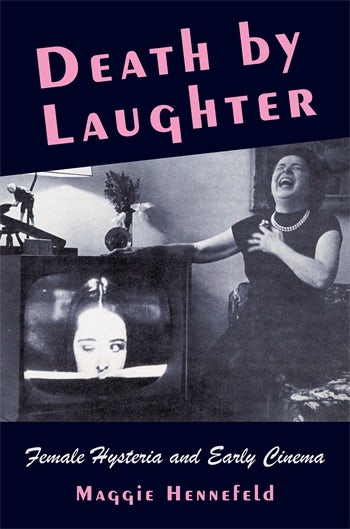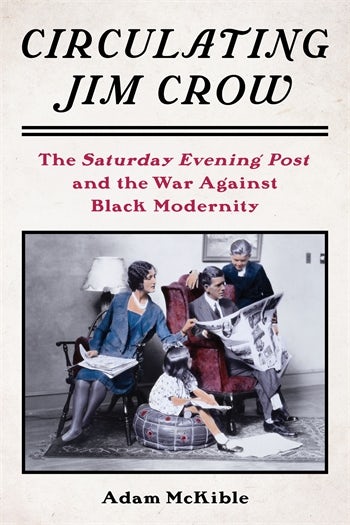2025 MSA Book Prize Shortlist (for books published in 2024)

WINNER: Maebh Long and Matthew Hayward, The Rise of Pacific Literature: Decolonization, Radical Campuses, and Modernism (Columbia University Press, 2024)
In their co-authored The Rise of Pacific Literature, Maebh Long and Matthew Hayward create new approaches to global modernisms by taking us into the classrooms, syllabi, and little magazines that forged a golden age of Oceanic writing. At the newly founded universities of Papua New Guinea and the South Pacific in the 1960s and 70s, the curriculum centered Pacific orality and Indigenous forms, treating modernist techniques as one set of tools among many that students could use to create a distinctive Oceanic literature. With fresh readings of writers including Albert Wendt, Subramani, and Marjorie Crocombe (along with less recognized authors), the book shows how the university—so often tied to reproducing the canon—became a crucible for a radical literary movement. The result is a vivid, collaboratively researched history of the rise of Pacific literature that links Port Moresby and Suva with Kingston, Delhi, and Lagos. Essential reading for scholars of modernism, postcolonial studies, and Indigenous literary futures.

Elizabeth Abel, Odd Affinities: Virginia Woolf’s Shadow Genealogies (University of Chicago Press, 2024)
Elizabeth Abel’s compelling, beautifully-written study usefully strays from the traditional pathways and settled canons that have defined Virginia Woolf’s influence on later writers. Abel constructs her conceptual foundation on Woolf’s own terms in Mrs. Dalloway, the “odd affinities” Clarissa senses she has “with people she had never spoken to…even trees, or barns” that offer some solace that after death, the “unseen part of us…might survive,” might be “recovered,” might persist through “haunting certain places after death.” The study’s first half considers the subtle presence of Mrs. Dalloway’s narrative form in the social and aesthetic projects of Nella Larsen and James Baldwin. The second considers To the Lighthouse’s tonal and formal affinities with the European post-World War II elegiac modes of Roland Barthes and W. G. Sebald and offers a new narrative of profound mourning running through twentieth-century European literature. A timely, compulsively readable reimagining of Woolf that opens subversive ways of thinking about literary reception, influence, and genealogy, Odd Affinities is a model for how to make seemingly old critical conversations feel vitally new.

Devin Fore, Soviet Factography: Reality Without Realism (University of Chicago Press, 2024)
A brilliant introduction for the English-speaking world to factography, a 1920s Soviet avant-garde movement and precursor to documentary that set out to register the Revolution’s massive transformation of Russian culture and its citizens. Original, meticulous archival work and a strong theoretical grounding are the impressive twin strengths of Soviet Factography, which conveys a nearly lost historical moment before the rise of documentary formalized practices for depicting reality. This moment combined post-revolutionary zeal with an experimental new media landscape that sought to inscribe and record the present without recourse to the past or concern for the future. Fore reconstructs the peak of the movement in 1928–1931, when photography, inscription technologies, film, and radio presented the possibility of an immediate experience of contemporary reality that would render artists, aesthetic form, and contemplation obsolete. While Fore does not engage the potentially massive implications of his historical account for our own moment of mass media’s proliferation of disinformation, readers will doubtless recognize echoes between the world Fore presents and our own.

Maggie Hennefeld, Death by Laughter: Female Hysteria and Early Cinema (Columbia University Press, 2024)
A study of the late 19th-/early 20th-century archive of hysterical laughter, Maggie Hennefeld’s Death by Laughter weaves together film history, cultural theory and criticism, political critique, and the history of psychotherapy and medical theater. It is a brilliant work of scholarship that is as intellectually rich as it is stylistically sharp—and genuinely funny. Its engagement with gendered and racialized bodies in media and medical history is timely and profound, challenging its readers to reconsider comedy’s affective power and its ethical/political stakes. Hennefeld’s archival work; theoretical insights; as well as her pleasurable curation of cinematic texts and images make Death by Laughter a landmark contribution to feminist film studies. It is a triumph: an impossible-to-put-down account of the politics of humor and the subversive, “madusanal” potential of cinematic excess.

Adam McKible, Circulating Jim Crow: The Saturday Evening Post and the War Against Black Modernity (Columbia University Press, 2024)
In a meticulous deep dive into a single influential periodical, Adam McKible shows how the Saturday Evening Post circulated anti-Black racism across a vast American readership. Adam McKible uncovers how George Horace Lorimer and his stable of white authors popularized demeaning dialect fiction that justified segregation and violence, even as Black writers of the Harlem Renaissance—from Paul Laurence Dunbar to W. E. B. Du Bois—exposed and countered this project. In lucid prose and sharp archival research, McKible places popular writers alongside Fitzgerald, Faulkner, and Petry to reveal how the Post normalized white supremacy for millions of readers. A bracing, necessary reappraisal of American modernism, mass culture, and the long fight against Jim Crow.
About
Each year, the Modernist Studies Association seeks nominations for
its Book Prize, awarded to a book published in the
previous year. A panel of judges determines the book that made the
most significant contribution to modernist studies. A book initially
published in another year will not be eligible for the prize. This
exclusion applies even if a new edition (paperback or revised, for
example) was published in the award year.
Please visit our Nominations page in Spring 2026 to recommend a book(published in 2025). Visit our Archive to see previous winners.